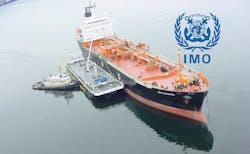Relatively speaking fuel prices are low and that may have caused some fleets and drivers to take their eyes off of improving fuel economy. I’ve said it before and am saying it again, regardless of the cost of a gallon of diesel, fleets should focus on getting the most from each and every gallon of fuel.
I recently learned about IMO 2020, a standard to convert maritime fleets to fuel that had 3.5% sulfur levels down to 0.5% sulfur. When this happens, estimates are that an additional 2.5 million barrels of low sulfur diesel will be needed each day. That’s a lot of diesel. One concern is that not all refineries will be able to make changes to their production to meet the new demand so that a big part of the increased needs could potentially be diverted from existing demand. That means medium- and heavy-duty trucks.
We all remember the lessons about supply and demand from our high school economics classes. If demand goes up and there is not enough supply, prices will go up. No one knows for sure if there will be a price increase in low sulfur diesel or what that increase might be, but some estimates are that prices could go up $10 to $20 a barrel which equates to a 25 to 50 cent increase in a gallon of diesel.
I am sharing this with you not because I have some inside information on whether fuel prices will go up, but rather to point out that there are a lot of factors outside our control that impact fuel prices and other markets that use diesel is just one of those factors. That is why we need to continually work on squeezing the most miles from a gallon of diesel.
We never know when the oil supply will decrease, where new demand will pop up without warning or where some natural disaster will interrupt the oil production, which means we could go from low fuel prices to high ones overnight.
When something you depend on to do your job is subjected to forces outside your control, it’s usually a good idea to do whatever you can internally to mitigate its impact on your operation. In other words, invest in the technologies and practices that help you get the most miles possible. Then when the vagaries of the market hit you’ll take less of a hit to your bottom line.
If you aren’t sure which technologies and practices make sense for you, check out our Confidence Reports for unbiased insights on the benefits and challenges of 85 different options.
About the Author

Michael Roeth
Executive Director
Michael Roeth is the executive director of the North American Council for Freight Efficiency. He serves on the second National Academy of Sciences Committee on Technologies and Approaches for Reducing the Fuel Consumption of Medium and Heavy-Duty Vehicles and has held various positions with Navistar and Behr/Cummins.
